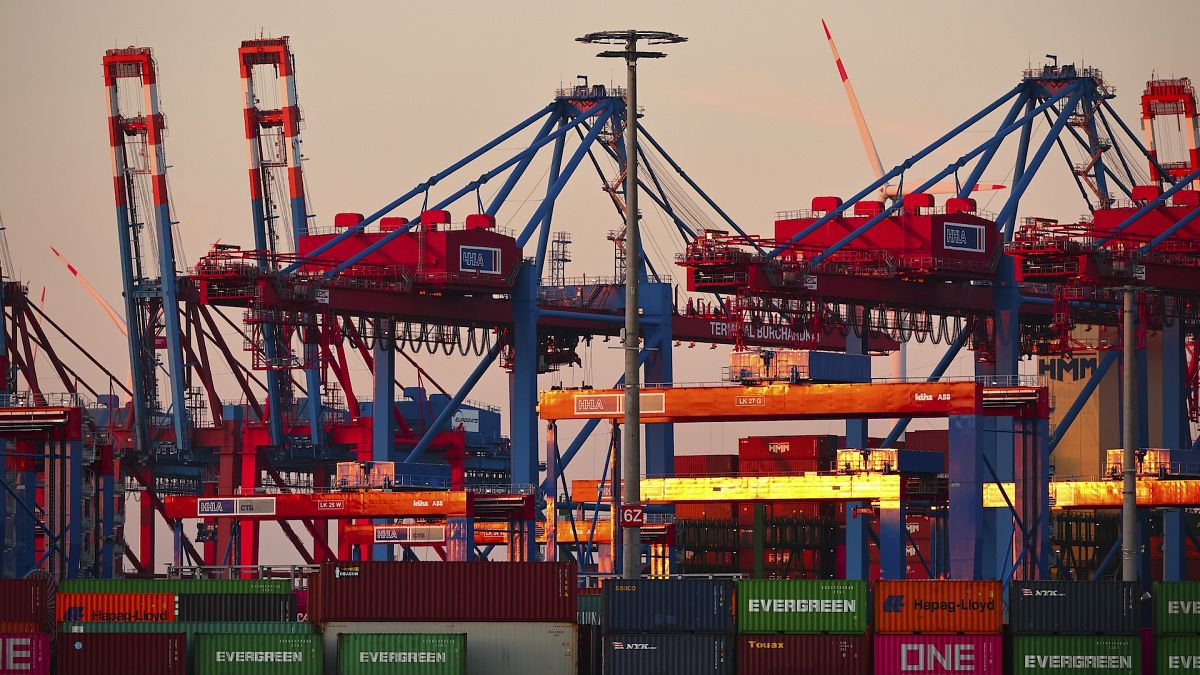In August, a surge in economic sentiment was observed across the eurozone and European Union, driven by a thriving services sector and improved employment prospects. The DAX index achieved record highs as inflation rates eased in various German states.
The Economic Sentiment Indicator saw a positive shift in both regions, with the European Union rising by 0.4 points to 96.9, and the euro area increasing by 0.6 points to 96.6, as reported by the European Commission. Notably, the eurozone’s figure outpaced economists’ predictions of 95.8, marking the highest level since May 2023, although it remains below pre-pandemic averages.
Employment Expectations Show Strong Recovery
A significant rebound was noted in the Employment Expectations Indicator in both the euro area and the EU. In the European Union, the indicator rose by 0.9 points to 99.6, while in the euro area it climbed by 1.3 points to 99.2. Despite these improvements, the Commission pointed out that the employment gauge is still slightly below its long-term average of 100.
The overall economic optimism was bolstered by increased confidence in the services, industry, and retail sectors. However, consumer confidence and sentiment within the construction sector remained stable. Among the larger economies in the EU, France enjoyed the most significant gain, with a rise of 4.3 points, largely attributed to positive business sentiment ahead of the Paris Olympic Games.
Additional rises were recorded in Spain (+1.3), the Netherlands (+0.9), and Poland (+0.3), while Germany (-1.7) and Italy (-1.2) experienced declines. Moreover, confidence within the services sector notably improved by 0.6 points, thanks to heightened demand expectations from managers and an uplifted outlook on past business conditions.
DAX Hits Record High Amid Lower Inflation
Following the release of the economic sentiment indicators, European markets exhibited relative stability. Yet, on Thursday, the euro weakened slightly while European stocks ascended, with Germany’s DAX index nearing unprecedented levels.
A decrease in inflation across several German states contributed to this upward trend, with the nationwide inflation report set to be released shortly. In Bavaria, for instance, consumer prices fell by 0.1% month-on-month, marking a year-on-year increase of 2.1%, the lowest since April 2021.
Inflation Rates Expected to Decline
Economists predict that overall inflation in Germany is likely to decrease from 2.3% to 2.1% year-on-year for August, setting the stage for its lowest levels since April 2021. Additionally, the harmonized index of consumer prices (HICP), used for broader eurozone inflation calculations by Eurostat, is anticipated to drop from 2.6% to 2.3% year-on-year.
Upon the release of the German inflation figures, the euro slipped by 0.3% below the 1.11 mark against the dollar, while Bund yields diminished by 3 basis points. European stocks saw upward momentum, with the Euro Stoxx 50 index increasing by 0.9% to reach 4,955 points, its highest since mid-July 2024.
Leading the advancements in the Euro Stoxx 50 were ASML Holding NV from the Netherlands (+2.5%), followed by Kering (+1.6%), and LVMH (+1.4%). The DAX index surged by 0.7%, surpassing 18,900 points and achieving a new all-time high, with top performers including Sartorius (+2.3%), Infineon (+1.7%), and Rheinmetall (+1.6%).
Other notable European markets also saw gains, as Italy’s FTSE MIB and France’s CAC 40 both advanced by 0.7%, with Spain’s IBEX 35 slightly up by 0.5%.
Photo credit & article inspired by: Euronews



